Audio file: interview with Ernie Best, Tashme high school teacher 1943-1945.
Interviewer: Roy Ito
LAC Accession number: 2000-0012
Title: Best, Ernie – Interview
Production date: 1993-01-01
Production company: White Pine Productions
Description: Oral history interview of Dr. Ernie Best. When he theological student he registered as a conscientious objector at the start of World War Two. He was first sent to work in a forestry camp on Vancouver Island. In 1943 he was sent to teach Canadian high school students in the Tashme, British Columbia detention camp. In 1946 he graduated in theology and was ordained. He moved to Japan with his wife Helen and they carried out missionary work there until 1951. He talks about being a ministry student in Toronto, being a conscientious objector, forestry camp, teaching at Tashme, conditions at Tashme, and his postwar missionary work in Japan. <90mn>
Part 1 308607-2000-0012-36-S1 MASTER 47 minutes.
During his early years, Ernie was influenced by anti-war teachings of relatives and friends. He graduated from Victoria College 1940 in Arts, then did MA in philosophy and political science and attended theology school.When WWII started, deeply anti war, he objected to conscription and became conscientious objector (CO). As a CO, he was detained,sent and interned with a group of about 40 COs including Menonites, Quakers, Hutterites, 7th Day Adventists on Vancouver Island in forestry camp cutting wood in Port Alberni in June 1942 at age 22. He was transferred to Duncan near Lake Cowichan to build roads, plant trees and fight fires. He was then transferred by RCMP to Tashme as a result of Rev McWilliams intervention. McWilliams who was sent to Tashme to work with Japanese interned there, identified Best as a possible candidate to teach in Tashme. McWilliams was incensed that government refused to provide high school education in internment camps. McWilliams and his good friend Howard Norman, who had returned from Japan, petitioned the United Church and Catholic Church to set up high schools internment camps.
Initially Best knew nothing about the internment of Japanese but agreed to join McWilliams in Tashme to teach. Prior to this he had not met any Japanese. He lived in with Rev McWilliams in one of the log cabins on Pig Alley in Tashme. He earned 50 cents a day which was same pay he received in forestry work. United Church missionary paid all expenses.
May Maclachlan arrived as one of the first high school teachers in January 1942. One barn was an apartment, a 2nd barn was used for administration and also a primary school. A cow barn was used for primary school during day and high school in late afternoon and evening. On Sunday church services were also held in the cow barn. The high school curriculum was set by correspondence course material provided by the BC department of education. Best taught grade 12 English. Winnie McBride Awmack taught science; May MacLachlan math; Kathleen Greenbank English literature.Best also taught Latin and French.
Part 2: 308607 -2000-0012-36-S2 MASTER 44 minutes.
Best left Tashme on leave every couple of months with a permit granted by RCMP. As a CO he was treated the same as Japanese internees.
Best taught in Tashme for 2 academic years starting Aug 1943.. He connected very well with his students. Many became his friends during the Tashme years and afterwards. He and his students played baseball, hiked everywhere, and played hockey on lake. In summer, he and the teachers organized camps for boys and for girls. On Sundays, there was Sunday school.
High school was of great benefit and a life saver to students who would otherwise have had nothing to do in the confinement of the camp. To support the students, the missionaries ensured that students found schools and universities in Toronto and elsewhere as war and internment came to an end.
As the war in Europe was ending and the news came that Tashme was going to be closed, families were urged to move to Japan. They were in turmoil about the order for repatriation to Japan. Many families were leaving Tashme.
Ernie and Helen McWilliams married in June 1945 and moved to Toronto in Sept 1945. Ernie got a job with Big Brothers Association in Toronto. Helen was doing a double degree in nursing at UBC but made arrangements to move to Toronto.. In Toronto, Ernie joined church and service groups campaigning to stop the deportation of Japanese to Japan
At the end of war, Best was ordained. He was assigned to Etonia Sask for 3 years. US and Canadian mission boards sent Best to Japan when civilians allowed to move and live in Japan. He went to Berkley for a year to learn Japanese. In April 1950, he and Helen were sent to Nagasaki as United Church missionaries. Helen worked at hospital while Ernie spent mornings studying Japanese and worked in afternoon to build a community center and United church. They spent 5 years in Japan. During a furlough he worked on doctorate at Drew and Columbia. He was invited to London UK international association of reconciliation, which involved a great deal of travel and speaking. He returned to US to finish his doctorate. He taught at Drew University for 3 years, then Lafayette College in Pennsylvania for 5 years, and finally at University of Toronto in philosophy of religion.
